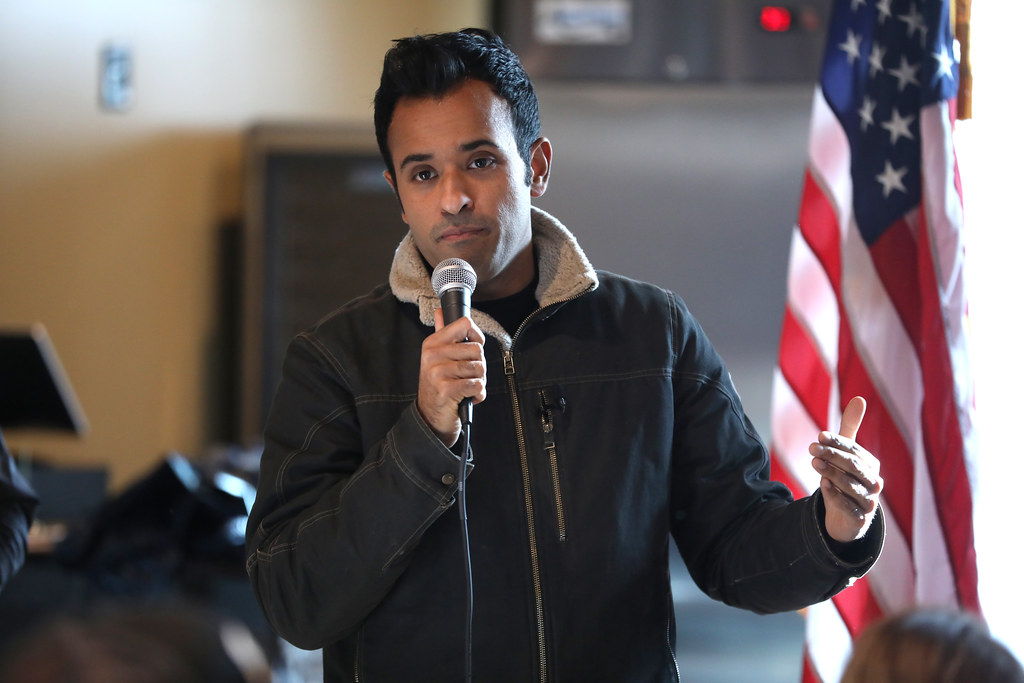Two of the major businesspeople are expected to lead the president-elect’s charge in sweeping federal government overhaul plans, though many specifics are still rather vague. The question is how one can reform, rationalize, or even deconstruct any part of the federal system specific to the United States of America.
If you’re President-elect Donald J. Trump, you turn to two billionaire entrepreneurs: Elon Musk, who founded and leads companies such as electric carmaker Tesla, space exploration firm SpaceX, and social media app X, and a man named Vivek Ramaswamy, who once ran a pharma firm and now has politic 작업. Together, they’ll lead what Mr. Trump has termed the Department of Government Efficiency.
On Tuesday, Mr Trump announced the formation of the department, referring to it as a ‘big project’ meant to bring drastic change to the federal government. He compared it to the Manhattan Project and declared that he would aim to cut the overall bureaucracy and federal spending to the desired targets by the US’s 250th anniversary – July 4, 2026.
“A leaner, more efficient government will be the perfect gift to America as we celebrate 250 years of liberty,” Mr. Trump said in a statement. “I am sure that with Elon and Vivek in the lead, we will be successful.”
However, the announcement raised many more questions than gave answers to which people were unhappy. First of all, the “Department of Government Efficiency” was never mentioned before, and while Mr. Trump recognized its importance, he failed to explain the scope of work of this new department. Unfortunately, it has not been clear whether the duo will hire their staff, the direction that they will have to undergo, and, more importantly, how they are going to drive such massive changes.

Musk and Ramaswamy: Ambitious but Unclear Plans
Tesla Motors and SolarCity’s founder Elon Musk, who became one of Mr. Trump’s biggest campaign donors, has previously committed to reducing the federal budget by $2 trillion. Nonetheless, neither Mr. Trump nor Mr. Musk has described how these things will be accomplished or which government departments will be axed.
“This is going to rattle the cage in this system, especially for the chronic over-budget and worthless waste which is government,” the statement quoted Mr Musk as saying. However, being involved in the company, there is the likelihood of some conflicts of interest coming up. SpaceX Tesla and Musk’s other business endeavors have together amassed more than $10 billion in federal contracts in the last 10 years. These companies also face investigation or litigation from various federal agencies, which means that Mr. Musk finds himself in rather an awkward position of analyzing the same authorities regulating his business.
Mr. Trump indicated that the department would largely be consultative, which followed that Mr. Musk would not necessarily become a pat governmental employee in a conflict-of-interest avoidance of sorts.
Vivek Ramaswamy, an entire political candidate who previously challenged Mr. Trump for the Republican party’s presidential ticket and who has since emerged as a loyalist, has also pledged a reformist agenda. During the campaign, he proposed to do away with full-fledged government departments like the Department of Education, the FBI, and the IRS. The thing is, he has demanded a 75% reduction in the federal workforce and deep cuts in American foreign aid for Ukraine, Israel, and Taiwan.
A History of Similar Promises
Federal reform itself is not a foreign concept and has been proposed more than once. Presidents have made such promises before. In 1993, President Clinton took a proactive step to cut waste in the federal government by having Vice President Al Gore supervise the National Partnership for Reinventing Government. However, it could manage only limited success in eliminating redundancies and pruning, and it sometimes failed to overhaul the government.
Even after persistent efforts to downsize it for nearly four decades, it has stayed huge, with approximately 3 million federal workers. Critics have been complaining that, despite being slightly smaller than the House of Lords’ historic size in the 1980s, it is still too large.
It is important to note that during his first term, Mr. Trump often talked about cleaning the swamp, but his efforts to keep the government small were rather modest. Now that Mr. Musk and Mr. Ramaswamy are on board, he says he will bring those improvements.
This is why I believe Elon and Vivek should revolutionize the federal bureaucracy with an efficiency-seeking perspective. I will fumigate the systematic waste and fraudulent activities inherent in the $6.5 trillion global governments spend annually.
Challenges and Controversies
This fulfills Musk’s increasing dissatisfaction with government controls, making his appointment even more compelling. Most notably, he has disputed some regulations regarding SpaceX with agencies such as the Federal Aviation Administration and the Interior Department. For instance, environmental scrutiny of SpaceX’s Texan test site bordering a wildlife sanctuary has halted testing of the Starship rocket, which forms part of Musk’s colonization of Mars.
The proposed department’s name also seems like a Dogecoin shoutout, with its acronym DOGE doubling for Department of Government Efficiency.
On the other hand, Ramaswamy was relatively unknown in governance, and his policies of divide and rule could turn off the undecided. Several commentators have noted that reducing the federal agencies and workforce by such percentages cannot and should not be done.
What’s Next?
When Mr. Trump is inaugurated, establishing the Department of Government Efficiency becomes merely an idea rather than a fact. For all the kindling that organizational chart bashing and calls for direct action inspire, there are concrete barriers to overcome. For now, the initiative’s coverage and outcome lie in how and to what extent Musk and Ramaswamy transform their visions into reality.